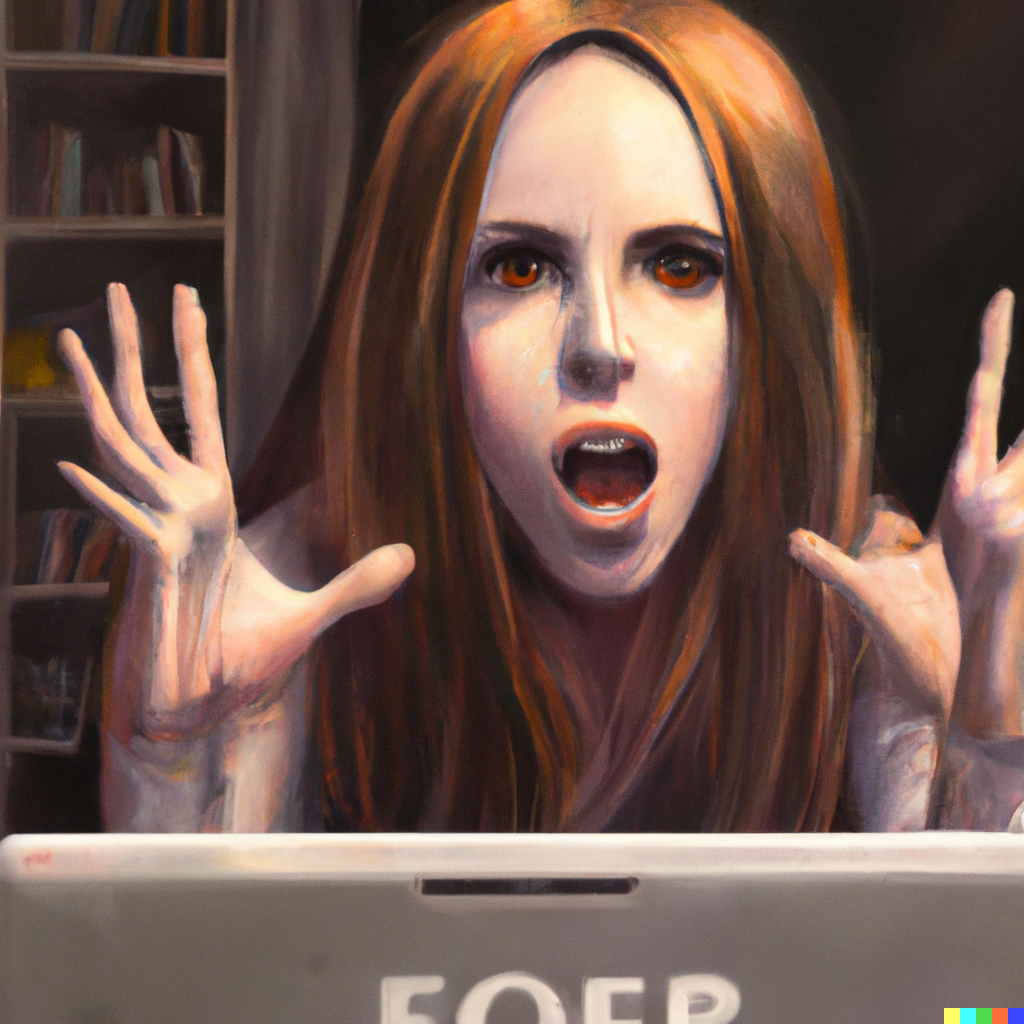Amidst a digitally dominated world in 2045, friends Lucy and Tom ignite a powerful movement, the “Sofa Revolution”, combining online tactics and real-life protests to defy a government mandate that threatens their freedom
In the year 2045, humanity had soared to new heights of technology and interconnectedness. The people of Britain, and indeed the rest of the world, had earned themselves the moniker of the “Screen Generation.” As two friends, Lucy and Tom, video chatted on their wall-sized screens, they discussed the evolution of their daily lives.
“I can’t remember the last time I stepped outside,” Lucy said, sipping her tea. “Everything I need is just a click away.”
“Right?” Tom agreed. “Work, shopping, and even friendships, like ours! It’s as if we’re living in a digital cocoon.”
Despite the comfort and convenience of their lives, the streets of London were eerily quiet, a far cry from the bustling city it once was. Parks, pubs, and playgrounds were abandoned as people formed virtual connections from their cosy homes. One evening, Lucy’s grandmother, who had been listening in on the conversation, chimed in.
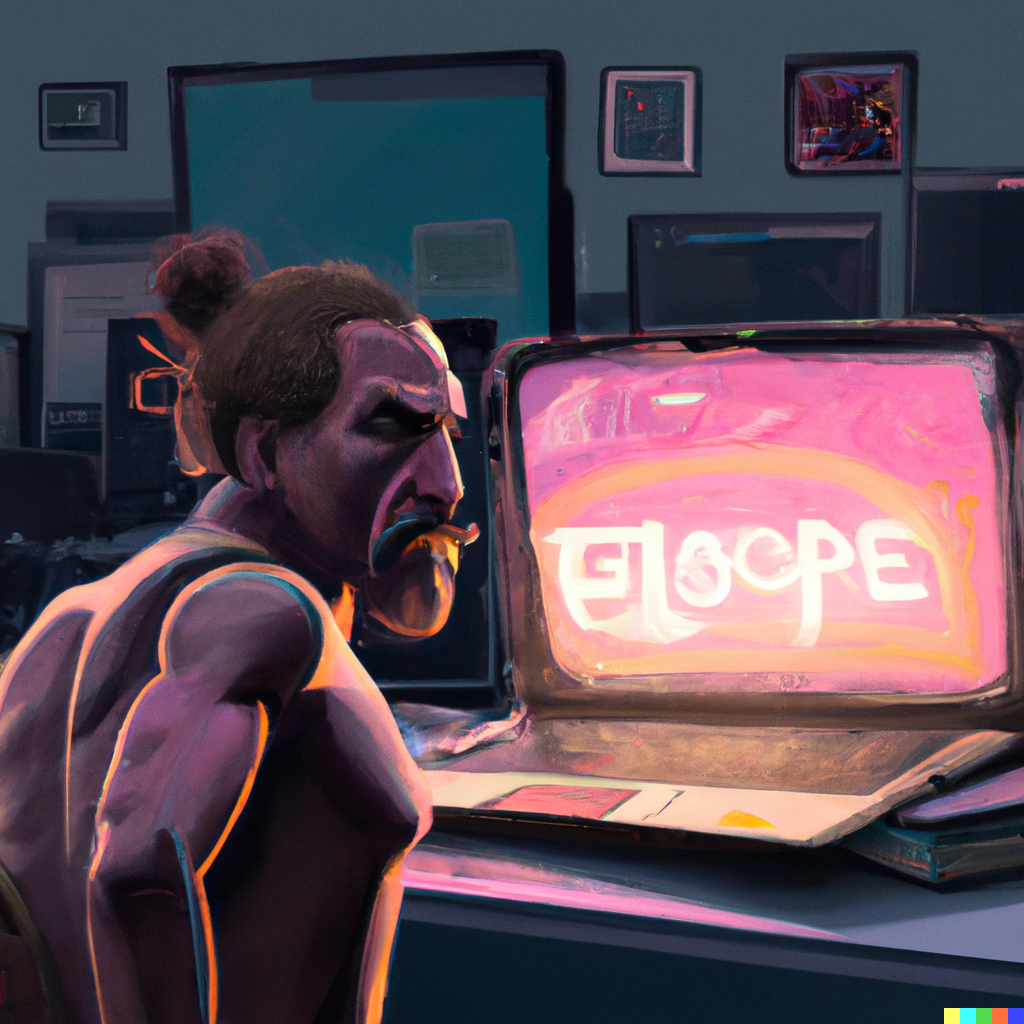
“Back in my day, we’d meet friends in person and go to the park or the pub,” she said with a hint of nostalgia. “It’s a pity all those places are left to rot now.”
Lucy looked thoughtful for a moment before responding to her grandmother. “You know, Granny, I’ve seen pictures of the parks and pubs from your time, and they did look lively. But we have our virtual hangouts now, and they’re so much more convenient.”
Her grandmother shook her head. “There’s a difference, dear. Virtual connections can’t replace the warmth of a hug, the joy of laughing together, or the thrill of watching a live game.”
Tom nodded, admitting, “Granny, you have a point. I’ve never actually met Lucy in person, but we’ve been friends for years. It’s strange when I think about it.”
Lucy chimed in, “Tom and I met during a virtual football match. We were cheering for the same team, and it just clicked. But I do wonder how it would feel to experience a real football match, surrounded by a cheering crowd.”
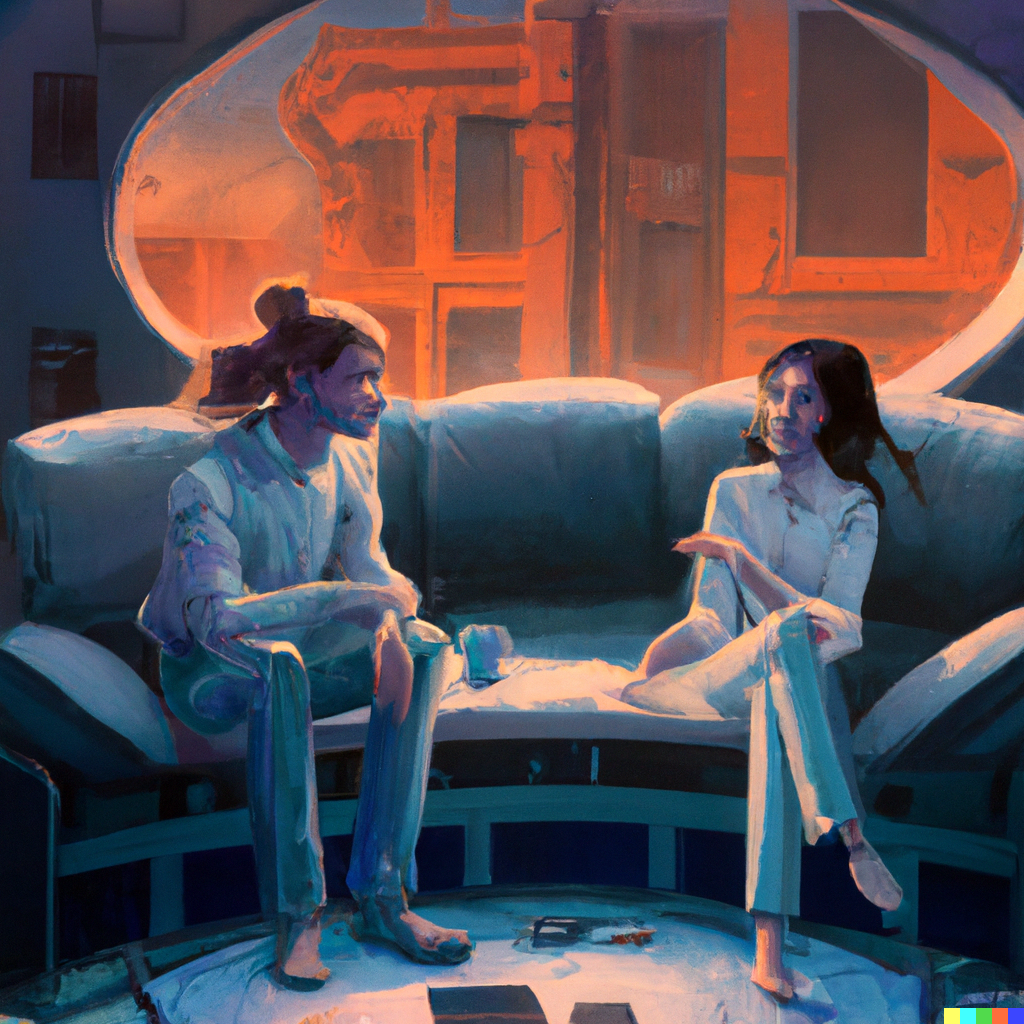
Her grandmother smiled, her eyes glistening with memories. “There’s nothing like it, I promise you. The energy, the excitement – it’s electric. You two should try meeting in person someday. It’ll add a whole new dimension to your friendship.”
Lucy and Tom exchanged glances on the screen, realising the truth in her grandmother’s words. As they pondered the idea of meeting in person, a breaking news alert flashed across their screens, interrupting their thoughts. The British government had just made an announcement that would change their lives forever. To maintain order and security, they declared that no one would be allowed to leave their apartments for more than two hours per day, unless absolutely necessary. Exceptions were granted only for medical emergencies, family deaths, or work-related issues.
“Can you believe this?” Lucy gasped, her face a mix of shock and disbelief. “We were just talking about experiencing the world outside, and now they’re restricting us even more!”
Tom frowned, his brow furrowed in concern. “It’s like they want to keep us trapped in our digital cocoons. But how do we even fight this? Protesting on the streets seems so… old-fashioned.”
Lucy nodded, “You’re right. We’re the Screen Generation. We need to fight back the only way we know how – online.”
This draconian law left the nation reeling, but the Screen Generation, like Lucy and Tom, were determined to adapt and respond to the challenge in their own way. They knew that the power of the internet was immense, and they were ready to harness it to regain their freedom.
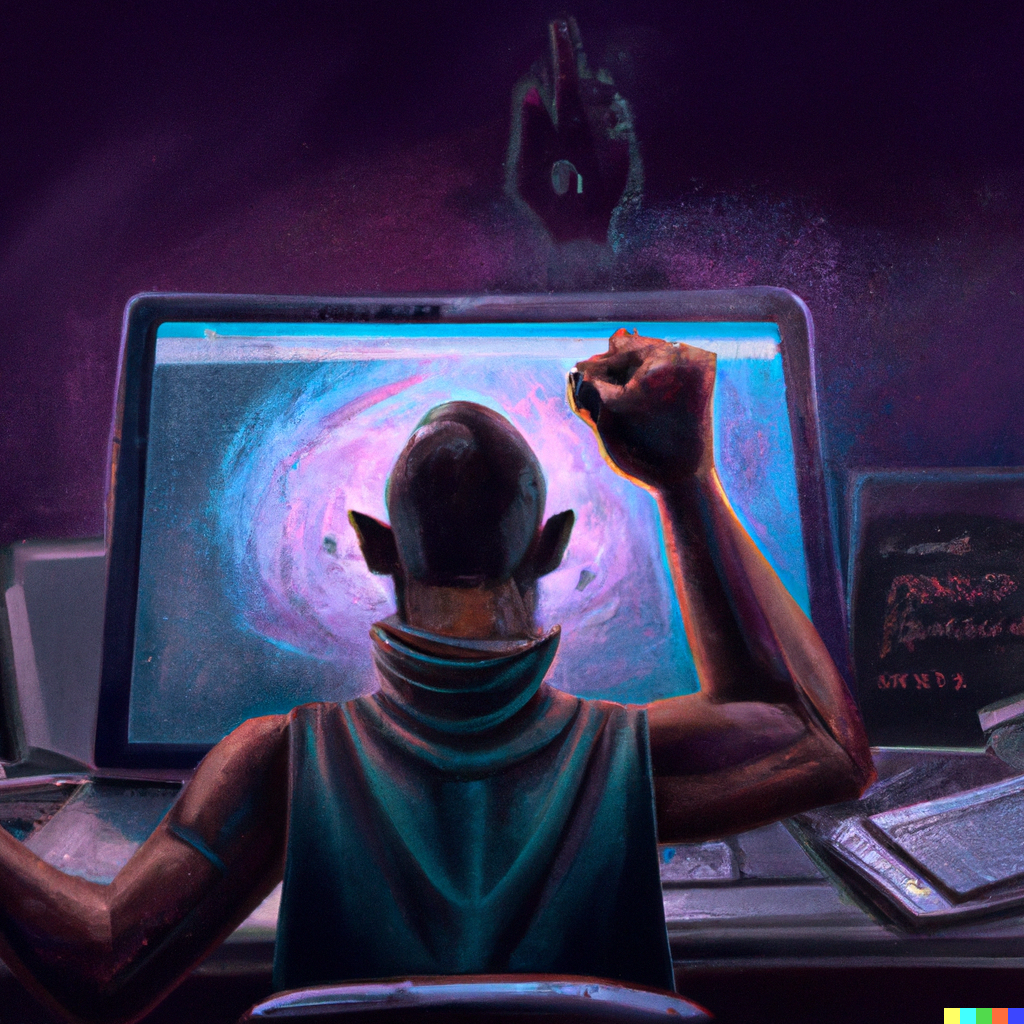
As Tom and Lucy brainstormed their online protest strategy, Lucy’s grandmother spoke up. “You know, back in my day, we would take to the streets and make our voices heard in person. There’s power in physical presence.”
Lucy considered her grandmother’s words. “Perhaps we could blend the old ways with the new. We could create an online movement that leads to a real-life gathering.”
And so the “Sofa Protesters” were born. From their living rooms, Tom, Lucy, and others like them waged a war of words and digital demonstrations. They bombarded social media platforms with their displeasure, using the hashtag #SofaRevolution. Virtual reality protests were organised, where thousands gathered in the digital realm, demanding their right to freedom.
However, the government remained unfazed. They saw the Sofa Protesters as nothing more than keyboard warriors, unable to take real action. They continued to ignore their cries for change, believing that a movement without physical presence posed no threat to their regime.
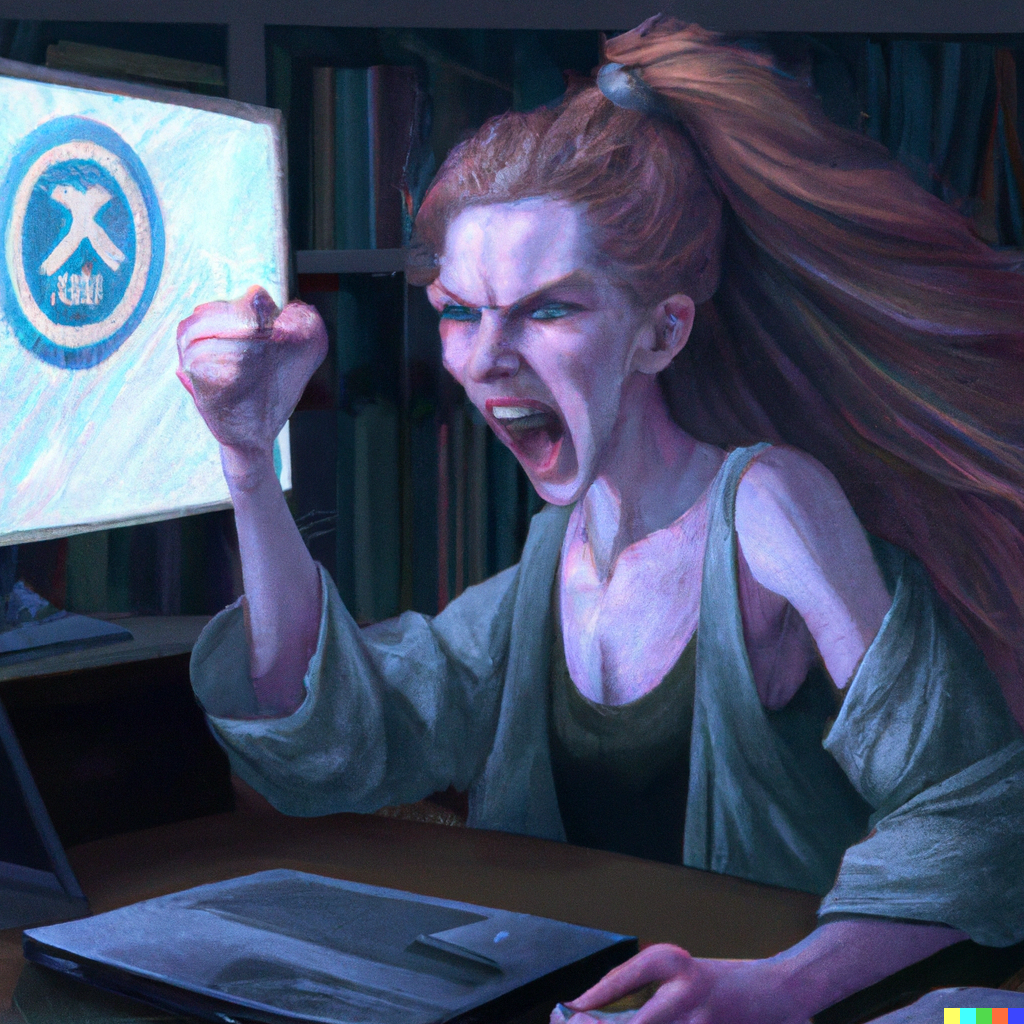
Frustrated by the government’s indifference, Lucy spoke with Tom. “Granny was right. We need to take our fight to the streets.”
Tom agreed, “It’s time we show them that we’re more than just a virtual presence. Let’s rally our fellow Sofa Protesters and march together for our freedom.”
As word of the street protest spread among the Sofa Protesters, more and more people began to emerge from their flats, squinting as they adjusted to the sunlight they had long forgotten. They gathered together, a sea of humanity that had been hidden behind screens for far too long. Lucy’s grandmother watched from their flat’s window, tears forming in her eyes as she witnessed the determination of the younger generation.
“This is what I was talking about,” she whispered, her voice shaking with emotion. “Look at them, united and strong.”
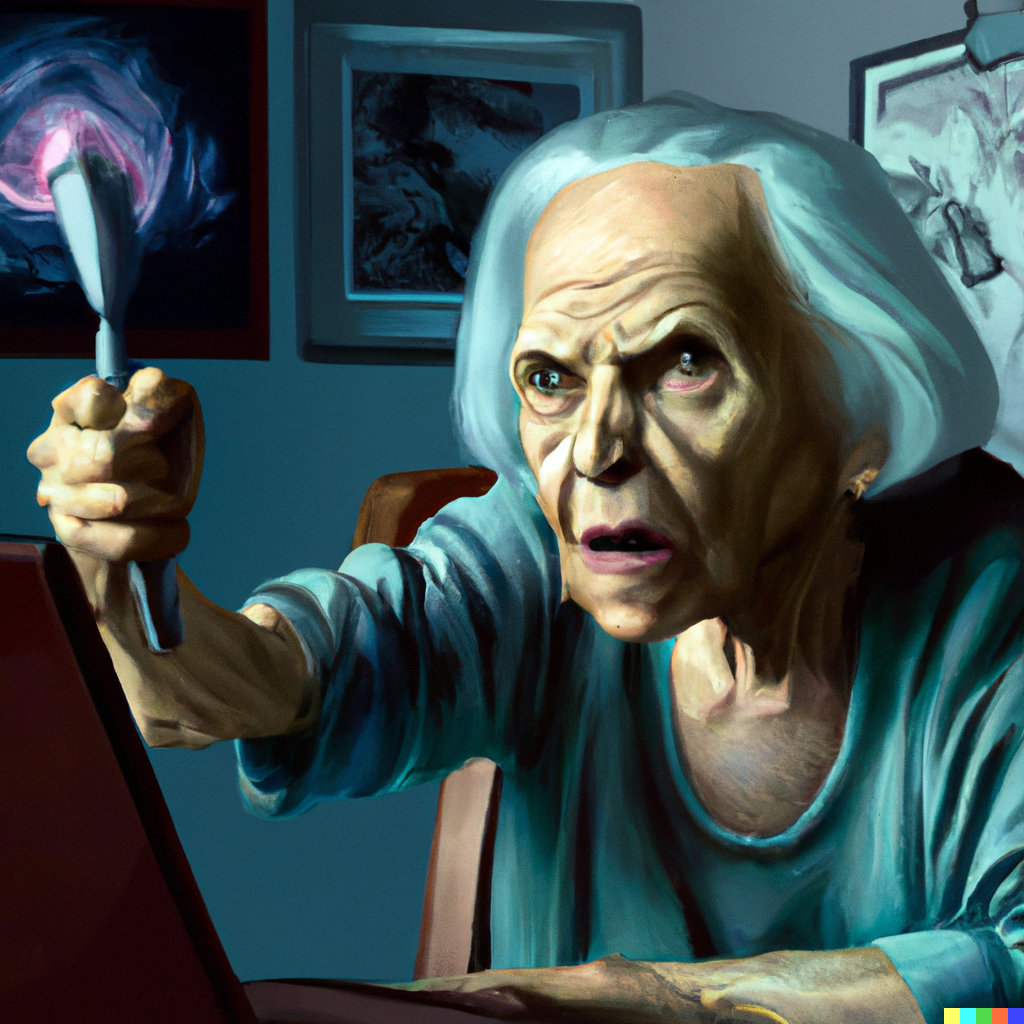
With each new face that joined the crowd, their power grew, as did their resolve. The once quiet streets were now filled with the voices of thousands of individuals who had once been nothing more than digital profiles. Now, they stood united, an unstoppable force demanding their rights.
As the protesters marched through the streets, chanting slogans and waving banners, the government could no longer ignore the people. The streets of London had come alive with the sound of solidarity and the determination of a generation that refused to be silenced.
Under the immense pressure of the Sofa Revolution, the government finally relented. They repealed the oppressive law and acknowledged the importance of personal freedom. The people had shown that even in a world ruled by technology, the power of human connection could never be underestimated.
Lucy’s grandmother wiped tears from her eyes as she saw the triumphant faces of the protesters, their victory a testament to the strength of unity. “I’m so proud of all of you,” she said, her heart swelling with joy. “You’ve proven that the human spirit can overcome even the most daunting of obstacles.”
Then something peculiar occurred. Once the protesters had achieved victory, they all retreated back to their flats and resumed their digital existence, rarely venturing outside their apartments. It was as if the battle for freedom had been fought, but the newfound liberty was left unexplored.
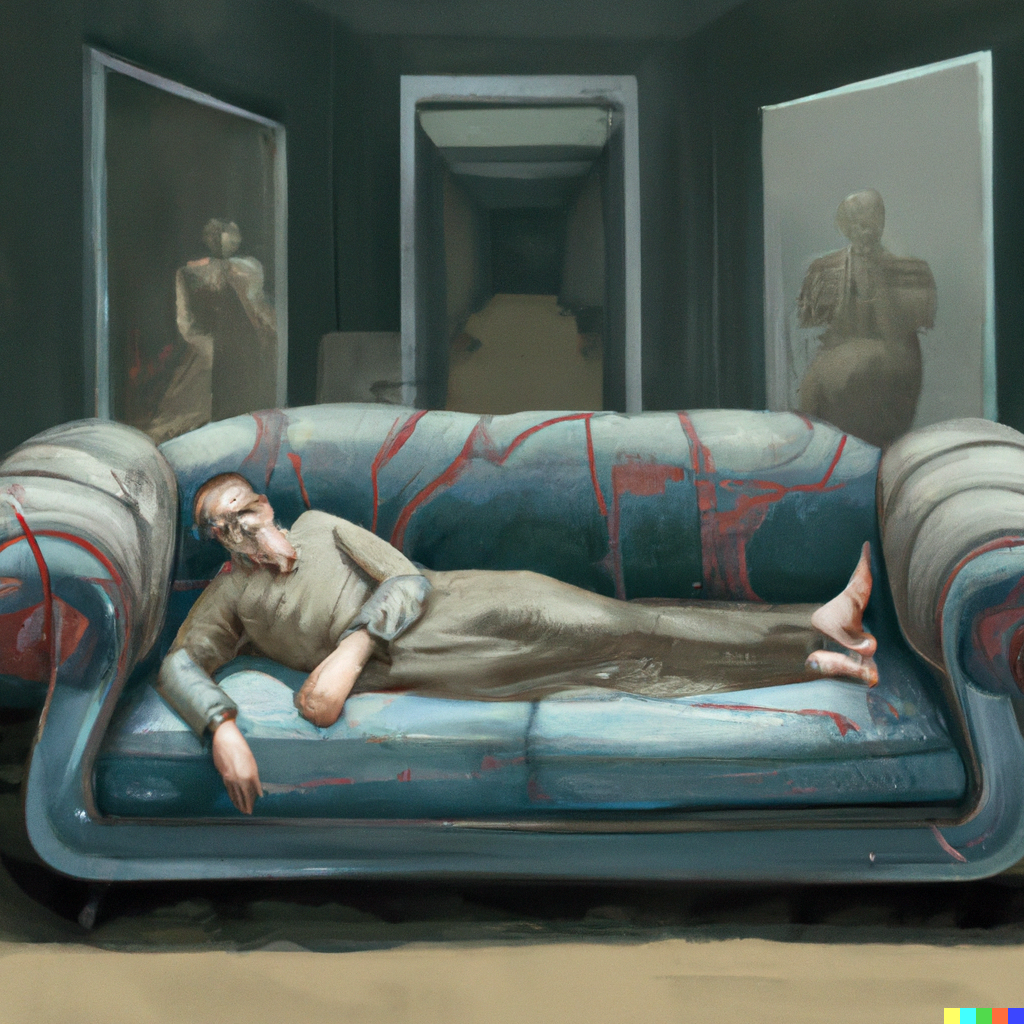
Perplexed by this phenomenon, the government commissioned a nationwide research study to examine people’s offline habits. They sought to understand whether the freedom they had granted was truly being utilised by the citizens.
To their astonishment, the research revealed that, even without any imposed restrictions, the majority of the population rarely ventured out for more than two hours a day. It appeared that, in practice, no mandatory limits had been necessary in the first place.
Lucy’s grandmother, ever observant, commented on the situation. “You fought so hard for your freedom, but it seems you’re still trapped by your screens.”
Lucy and Tom exchanged knowing glances. They understood that the true challenge now lay not in the fight against the government’s oppressive laws, but in their own willingness to break free from their digital cocoons and rediscover the power of human connection.
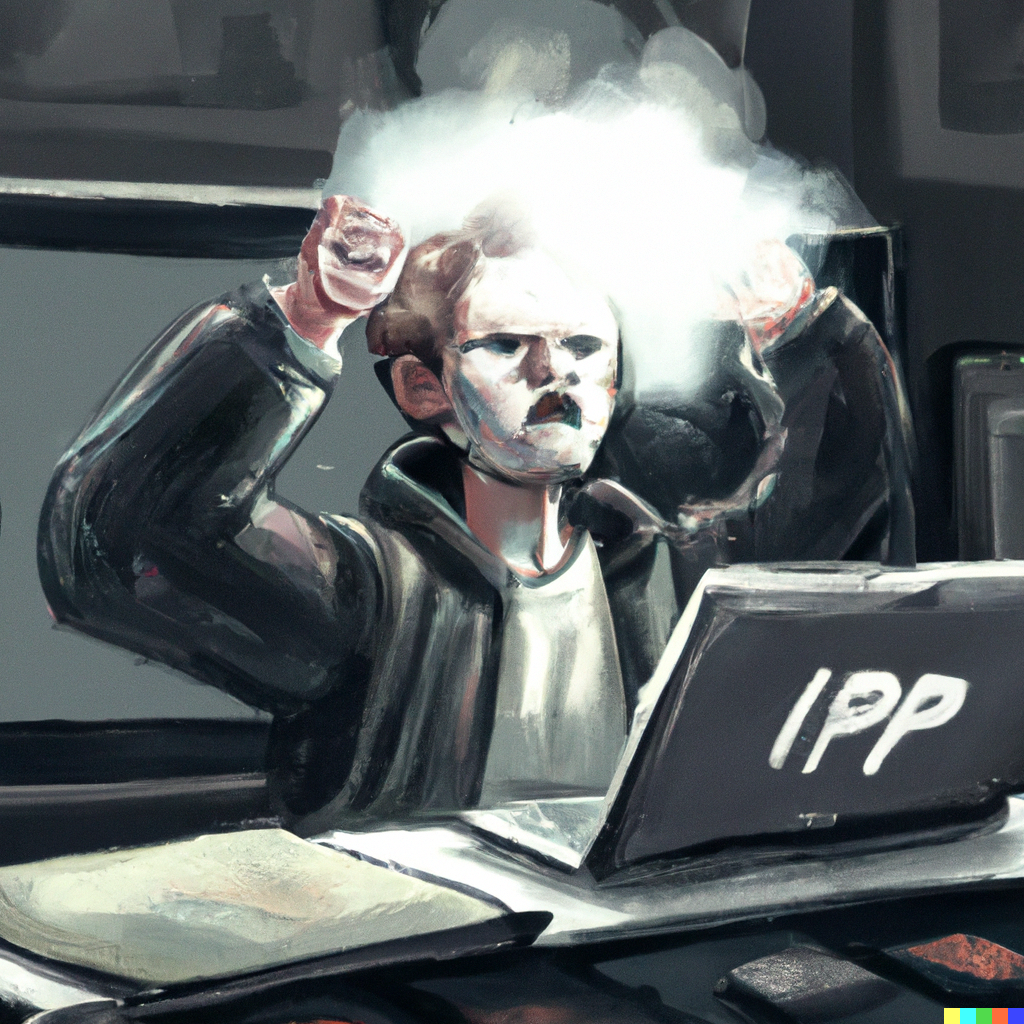
All images were generated using DALL.E 2 (Open AI)
